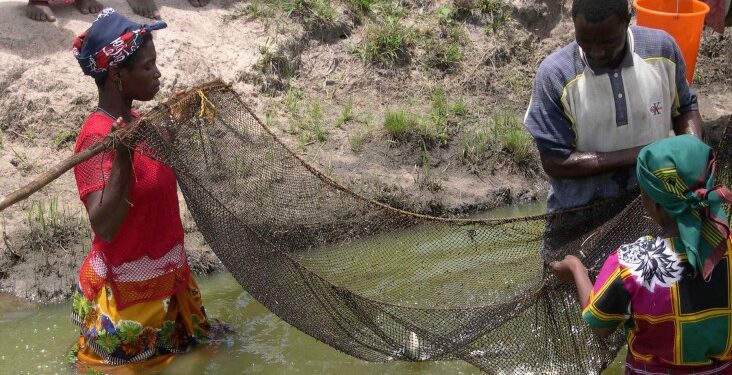The poorest countries face the greatest risks from climate change and require international support to finance adaptation.
All countries, rich and poor, must adapt to climate change. A recent report by the United Nations Intergovernmental Panel on Climate Change spelled out the dramatic consequences of failing to curb the rise in global temperature and adapting to a hotter planet. Adaptation should address risks from climate change and extreme weather, for example by safeguarding agriculture, managing the impact of rising seas, and making infrastructure more resilient.
The benefits of adaptation are sometimes difficult to estimate because they depend on specific factors such as how well-adapted a country is to its current climate. Nevertheless, well-crafted policies can produce large returns, as we show in three papers published today covering climate adaption and fiscal policy, macro-fiscal implications, and bringing climate adaption into the mainstream of fiscal planning.
Long-term savings from investment in resilience and coping mechanisms—such as better irrigation, improved seed varieties, strengthened health systems, and greater access to finance and telecommunications—can be very significant. This is especially true for sub-Saharan Africa, which experiences one-third of the world’s droughts and is particularly vulnerable to rising temperatures and extreme weather because of its dependence on rain-fed agriculture. Our research shows that a single drought can lower an African country’s medium-term economic growth potential by 1 percentage point.
In Ethiopia, however, some farmers’ yields rose by up to 40 percent with the development of varieties of wheat that were resistant to rust, a fungal disease. In Ghana, meanwhile, cocoa farmers made their crops more resistant to drought with improved seed and irrigation and by planting trees to shade their crops from the sun.
The benefits of investing in adaptation are not confined to sub-Saharan Africa: countries in all regions of the world can benefit from adapting to a hotter planet. Yet this doesn’t mean adaptation can replace mitigation. Without strong mitigation, it will be impossible to stabilize global temperature, and adaptation would become impossibly expensive.
Daunting costs
Some countries face daunting costs already. Research by the IMF and others suggests public adaptation costs will reach around 0.25 percent of global gross domestic product per year in coming decades. While such estimates can appear manageable at the global level, they aren’t representative of the scale of the challenge faced by many poor and vulnerable countries. We estimate that annual needs exceed 1 percent of GDP in about 50 low-income and developing economies for the next 10 years. The costs can be even larger for small, island nations exposed to tropical cyclones and rising seas, up to 20 percent of GDP.
Unfortunately, countries that need to adapt the most often lack the means to do so. They typically lack the financing and the institutional capacity to implement needed adaptation programs. Further, some countries most exposed to heat waves, droughts, storms, and sea-level rise often confront other pressing development needs. That means it’s more important than ever to invest in resilient growth, with adaptation fully integrated with other sustainable development goals.
The international community can help poor and vulnerable countries adapt by providing financial support and developing institutional capacity. These countries will suffer the most devastating impacts of climate change even though they’re not responsible for causing it. It’s also in the world’s interest to ensure climate change does not jeopardize development and stability in poorer countries. Investing in climate resilience can also be financially efficient for development partners because up-front investment in protection can be less expensive than humanitarian relief and reconstruction after a disaster.
To be fruitful, adaptation support should supplement existing aid, with streamlined conditionality that’s commensurate with the country’s institutional capacity. For example, we found that lengthy and complex requirements have hindered the direct access of Pacific Island countries to international climate funds.
How the IMF is helping
The IMF is helping its members meet adaptation challenges, including with today’s release of three reports, which supplement and support work by the World Bank, the Intergovernmental Panel on Climate Change, and other international organizations, and build on existing work at the Fund.
Such work includes analysis of the regional and country challenges of adapting to climate change in our annual Article IV consultations (for example, for Maldives, for Republic of Congo, or Dominica) and in cross-country studies (for sub-Saharan Africa, for the Western Hemisphere, and for Asia and the Pacific).
The Fund is also helping by extending its capacity development support, which now includes climate macroeconomic assessment programs, climate-focused public investment management assessments and green public financial management.
And finally, we are working with member nations and partners to develop financing solutions, such as the proposed Resilience and Sustainability Trust, to channel financial resources from countries with strong external positions into affordable long-term financing for vulnerable countries. This will help recipients address structural challenges such as climate change through policy reforms to foster balance of payments stability.
Climate adaptation alone is not enough. Unless global temperature is stabilized by strong mitigation, adaptation will become impossibly expensive. Yet countries can still reap large benefits from investing in resilient growth and integrating adaptation into development strategies.
(Courtesy IMF/By Kristalina Georgieva, Vitor Gaspar and Ceyla Pazarbasioglu)












